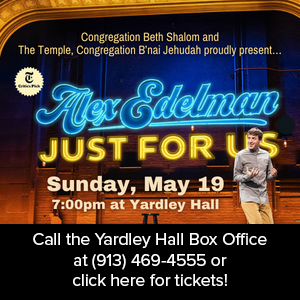“Baby boomers changed this country, and we certainly will change how we age.” I will never forget when Andrea, my social work mentor at a hospice I volunteered with in high school, told me this — while laughing — with a very brash New York accent.
“We don’t want to go to a nursing home to live or sit in a senior center for four hours a day as our only form of recreation,” she said. I don’t want that either, I realized.
The commonalities between millennials and baby boomers are something that I often think about fondly, especially as I work in aging and older adult services.
I learned about the importance of saving for retirement early when I was in my “Older Adults & Aging Policy” course in grad school. You need how much money to retire at age 62?! (Millennials are looking at an early retirement of 67 by the way, according to ssa.gov.) Looking at ways to sustain Social Security, Medicare, and what happens when adults do (or don’t) put into their 401(k), had me, a millennial, saving as soon as I had access. That class felt personal and was not just for the older adults I was planning on working with.
Historically, millennials have a lot in common with baby boomers as well. The 1960s were a time of conflict and progress, and we millennials understand growing up in an “unprecedented” world. We were children during the 9/11 terror attacks that led to a long-term war overseas. Iraq was our Vietnam. My millennial veterans and civilians alike will grapple with those traumas and societal repercussions, just like our Vietnam veterans still have with theirs. Climate justice and combating climate change today is a continued fight of the environmental movement the boomers worked on. When I protested for racial justice in the summer of 2020 and since, I reflected on (and tried to channel) all the baby boomers before me who had taken part in civil rights demonstrations and protested for racial equity.
What started as my career focused on direct-practice hospice care has now grown into a passion around community-level aging infrastructure. As Laura Gilman, JFS Director of Older Adult Services, wrote earlier this month, most older adults want to age in their community. That means there need to be services and amenities close by, within walking distance or accessible by convenient public transit if someone no longer drives. There is community support for their needs such as food access or delivery. Isn’t that what we all need?
When you think about city planning, many of the things it takes to age in a community are things that millennials look for when choosing to rent or buy in a neighborhood. We want walkable cities. We love having mixed-use space. We want convenient access to shopping, food, and entertainment, and we want to be close to a park or green space for recreation.
Aging also requires healthcare that’s accessible and affordable — this a necessity for all ages. As someone who will turn 30 next year, I care a lot about how we support our older adults. Not because 30 is old but because it is glaringly obvious to me that we are all aging. I have realized that I want all the things aging advocates are working towards, both now and for my future. In 30 to 40 years when I retire, I certainly want a different society than we have today, and that investment starts now.
The “okay boomer” phase hopefully has passed, but the irony of that phrase wasn’t lost on me. It separated us from what we had in common and was dismissive in four short syllables. We can’t lump an entire generation into one box. When I reflect on the baby boomers who I get the privilege to work with, it has been the most helpful experience in my professional career.
Sondra, the Jet Express transportation and Help at Home maintenance program manager before me, is an amazing resource. As she was working towards semi-retirement and I was a new hire, she made sure that I knew what I needed to do to step into “her” programs. That cross-generational mentorship is incredibly valuable and not often fostered. In the workplace, Cam Marston, CEO of Generational Insights, noted, “Both boomers and millennials are very social beings and very attuned to building consensus.”
So now I say, okay boomer (and Gen X, millennials, Gen Z and all who come after us), Older Americans Month is important for everyone! For as long as we are on this earth, we get to experience the joys and pains of aging, which are really the joys and pains of the human experience. I’m incredibly grateful to work at an agency that values the humanity of each individual and embodies Tikkun Olam — repairing the world one person at a time.
There are many ways for you to invest in older adults, and when we plan for a community that works for our oldest (and youngest), it benefits us all. As we enter June, I hope you had a happy Older Americans Month. May we all commit to investing in community-level aging infrastructure, for those who are old now, and all of us who hope to be “old” in the future.
By Rachel Ohlhausen, MSW, Director of Program Operations at JFS



